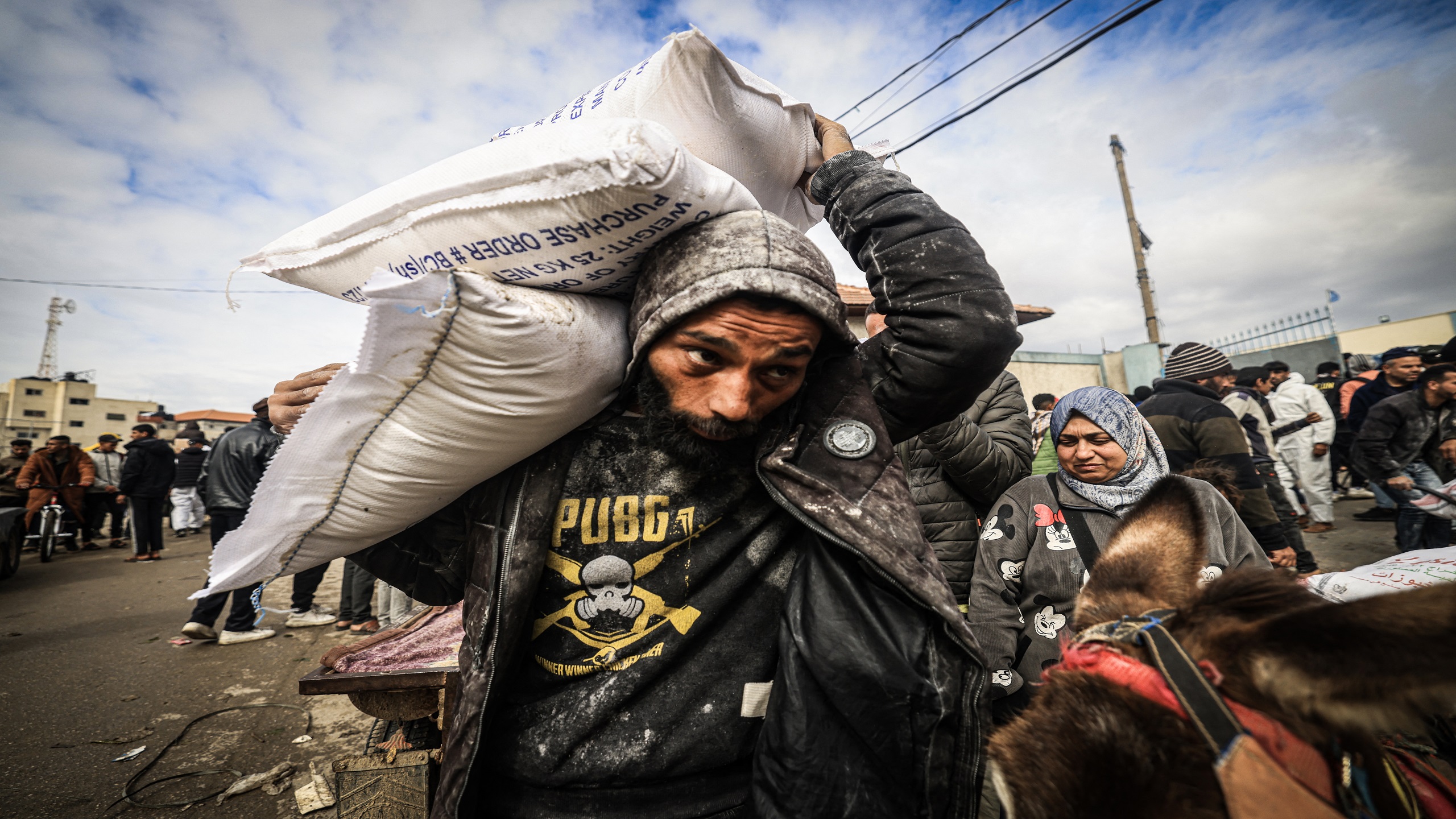Desperate Voices From Gaza: Calls for Cease-Fire and Humanitarian Relief
Residents of Gaza, living in extreme poverty and displacement, urgently demand a cease-fire and international assistance as the conflict persists
It has been over 110 days since the Israel-Hamas war began on October 7, following an attack by Hamas on neighboring Israeli communities, in which more than 1,000 people were killed and approximately 250 were taken as hostages into the Gaza Strip. That same day, the Israeli government vowed to eliminate the group responsible for the massive attack. Since then, intense fighting between the Israeli army and Hamas, with its installations deeply embedded in civilian areas, has devastated Gaza. This conflict has led to the internal displacement of approximately 1.9 million people, who are now living in catastrophic conditions.
Speaking with The Media Line, Gaza residents expressed their dire need for a cease-fire and humanitarian aid. Residents referred like Asmaa Mukdad and Umm Muhammad Ubaid referred to their living conditions as “beyond description,” with severe shortages of necessities like fresh water, shelter, and medical care. Despite some aid deliveries, Gazans find them insufficient amid their struggle in displacement camps, longing for a return to their towns and homes. They shared stories of hardship and resilience, emphasizing their determination to rebuild their lives against all odds.
Asmaa Mukdad: Words cannot capture the full extent of our suffering. The situation we are in is indescribable. We are left with nothing. Absolutely nothing. We are deprived of human rights and a normal life; we aren’t living as people should. Our children are sick, and we have vulnerable elderly people. We are responsible for both older and younger children. We are facing an extremely difficult situation. We have no source of income. We are among the poorest people. We have abandoned our normal roles in life, finding ourselves in the direst poverty. What will become of our situation?
Umm Muhammad Ubaid: We suffer from a lack of fresh water and cannot find water to drink, meaning we have to walk for three or four hours to get water.
Umm Haitham Harara: Only God knows the extent of our suffering due to the lack of water and our inability to bathe.
Umm Oni el-Madhun: When we go to the bathroom in the morning, there are usually 30 to 40 people waiting in line as well.
TML: Many feel their situation cannot be understood from the outside.
Ibrahim Abu Ubaid: Life is extremely difficult, beyond description. Picture tents, children, sand, and graves. This is the reality we live in.
TML: As of January 15, 76,550 tons of humanitarian aid have been delivered to Gaza, coordinated by Israel, Egypt, and the United Nations. Yet, Gazans report this aid is insufficient, and there have been instances of Hamas members hijacking aid trucks en route to the Strip.
Umm Haitham Harara: The aid we receive isn’t enough for even one person, let alone two, and there are nearly 20 of us in one tent. During rain, our situation becomes dire, lacking even basic necessities like pillows and blankets to keep us warm.
Asmaa Mukdad: There’s hardly any aid, even from UNRWA. What little we receive, like firewood, is insufficient. Everything is expensive and beyond our financial means. We’re struggling against exploitation.
TML: Gaza’s citizens are keen to return to their homes and towns, despite the devastation wrought by the war.
Ibrahim Abu Ubaid: We demand an immediate cease-fire and to return to our homes.
Umm Oni el-Madhun: Even if it meant walking all the way back right now, I would do it. I want to go home.
Ibrahim Abu Ubaid: Our homes, even in ruins, are better than the humiliation we face in displacement camps. We prefer to be amid the remains of our homes, no longer standing buildings, than to live in these camps.
TML: The people are awaiting not only the end of the war to return home but are also in desperate need of medical treatments, which remain inaccessible until the war concludes.
Thaar Abu Modi: There are no hospitals. They say things will return to normal after the war, that we can go back then. However, the war shows no signs of ending.
TML: Some are determined to rebuild their lives, regardless of the circumstances.
Umm Oni el-Madhun: We don’t seek anything from the world; it’s of no use to us. Only God is sufficient for us; He is the best to manage our affairs. We have no need for anyone else since no one even lifts a restriction or dictates our actions with those who have been waiting and might turn against us. They bombed houses around us, and yet, we are committed to rebuilding.
Asmaa Mukdad: Yes, I plan to set up a tent where my home once stood, on my own land, in my own place. I refuse to leave my home and land. We do not pose a challenge to international politics.


